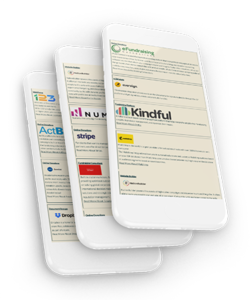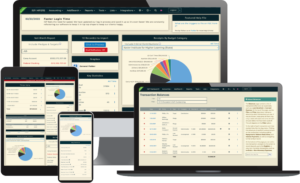
The Federal Election Commission (FEC) plays a crucial role in maintaining the integrity of campaign finance in the United States. For political treasurers and campaign managers, understanding FEC deadlines is essential to ensuring compliance and avoiding penalties. This guide provides a breakdown of what an FEC filing is, who needs to file, and key deadlines to be aware of.
What is an FEC Filing?
An FEC filing is a report submitted to the Federal Election Commission by political committees, including candidate committees, party committees, and political action committees (PACs). These filings disclose financial activities such as contributions received, expenditures made, and debts incurred. The purpose of these reports is to promote transparency, ethical behavior, and accountability in the electoral process.
Who Needs to File With the FEC?
FEC candidate filings are mandatory for individuals and entities involved in federal elections, including:
- Candidate Committees: Individuals running for federal office must register and file periodic reports with the FEC.
- Party Committees: National, state, and local party committees must report their financial activities.
- Political Action Committees (PACs): PACs, including Super PACs, must file reports detailing their fundraising and spending.
- 527 Organizations: These tax-exempt groups must disclose election-related activities to the FEC.
FEC Filing Deadlines
Understanding FEC deadlines is critical for maintaining compliance. The FEC campaign breakdown by quarter follows a structured schedule, which includes regular periodic filings and additional reports due before and after elections. Key FEC deadlines include:
- Quarterly Reports: Most committees must file quarterly, with deadlines on April 15, July 15, October 15, and January 31.
- Pre-Election Reports: Due 12 days before any election in which the committee is involved.
- Post-Election Reports: Due 30 days after the general election.
- Monthly Reports: Certain committees, like national party committees, must file monthly reports.
Missing an FEC deadline can result in significant fines and penalties. For more details on FEC deadlines and filing procedures, visit the FEC website.
Electronic Filing with the FEC
The FEC encourages committees to use electronic filing, which is faster and more efficient. Committees that raise or spend more than $50,000 in a calendar year are required to file electronically. Benefits of electronic filing include:
- Speed and Efficiency: Electronic filings are processed more quickly than paper filings.
- Immediate Confirmation: Committees receive immediate confirmation of receipt.
- Access to Software: The FEC provides free software to facilitate electronic filing, though the user experience may be frustrating at times.
For more detailed guidance, visit the FEC’s electronic filing page.
FAQs
What does the FEC deadline mean, and what happens if I miss one?
Missing an FEC filing deadline can result in fines and penalties. The FEC’s Administrative Fines Program assesses penalties based on the length of delay and the amount of financial activity not reported on time. Timely compliance is essential to avoid financial repercussions.
Can I amend an FEC filing after submission?
Yes, amendments can be made if errors or omissions are discovered. The FEC allows corrections to ensure accurate and up-to-date reporting.
What is the threshold for mandatory electronic filing?
Committees that receive contributions or make expenditures exceeding $50,000 in a calendar year must file electronically. This ensures that high-activity committees use the more efficient digital filing system.
How do I register a new committee with the FEC?
To register, file a Statement of Organization (Form 1), which includes key details like the committee’s name, address, and treasurer information. This must be filed within 10 days of surpassing $1,000 in contributions or expenditures.
What types of contributions need to be reported in FEC filings?
All contributions—including monetary donations, in-kind contributions (goods and services), loans, and advances—must be reported with details on the source, amount, and date.
Compliance and Best Practices
To ensure compliance with FEC regulations:
- Stay Informed: Regularly check the FEC website for updates on FEC deadlines and filing requirements.
- Use Software Solutions: Campaign accounting software, like ISPolitical, can help streamline the filing process.
- Consult Experts: Hiring a compliance expert or legal advisor can help navigate complex regulations. Make sure your professional has the tools they need to stay compliant and on top of their campaign finance responsibilities.
By staying informed and using the right tools, campaign treasurers can manage their FEC filings effectively, ensuring compliance and transparency. Political campaign accounting software that integrates with the FEC reporting system is invaluable—it’s one of the best investments a campaign can make to stay compliant and on track. Learn more about how these tools can enhance and safeguard your campaign here.






